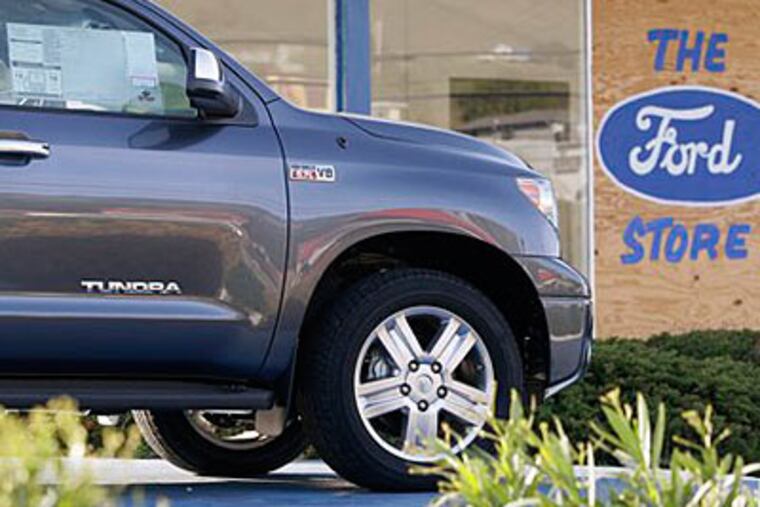
The U.S. auto industry - for 100 years an icon of American productivity and industrial might - is on the verge of collapse.
The stakes couldn't be higher. Either the federal government steps in to provide emergency aid or Chrysler and General Motors say they may be forced into bankruptcy by the time a new administration takes office.
The consequences of such a failure, in my mind, require that Congress take a prudent risk and provide help to a beleaguered industry that has been a linchpin of the American economy for more than a century. The cost in jobs, lost productivity, and industrial infrastructure supporting the industry would be devastating.
Congress should intervene, but only with strong assurance that the car manufacturers have a viable plan for survival and turnaround. In the face of an angry, resentful public, the burden of proof lies with the industry. Congress will not throw good money after bad.
First and foremost, Congress must know whether there is a reasonable chance that a financial lifeline - in the form of bridge loans or other kinds of support - will keep the automakers afloat long enough to weather the current storm and start down the road to recovery. Substantial sacrifices by the automakers, labor, dealers, suppliers and creditors will be required.
Congress will examine the Big Three's plans for recovery and weigh their plausibility with the help of experts. The money, if it comes, is likely to be drawn from an existing $25 billion loan program meant to help the Big Three improve fuel efficiency. That money, in turn, would be replenished quickly, perhaps from the $700 billion Wall Street rescue package, which the incoming administration has said it will consider spending partly on the auto industry.
Last week, I convened a meeting in Philadelphia with top executives from the Big Three and their financial lending arms; labor leaders, local dealers and suppliers; and economists. The goal was to answer questions and allow them to state the case for government assistance.
The discussion was sobering. GM and Chrysler said they need cash this year. Ford said that if one company goes down, so would the rest.
The automakers face an uphill battle, though. The American taxpayer has a deep-seated aversion to bailouts, if judged by the reaction to the Wall Street rescue. Congress shares the public's skepticism. In our free-enterprise system, the market is supposed to determine the winners and losers.
The pressure to act quickly does not help. There is not time for regular order in Congress: introduction of legislation, committee hearings, debate, amendment, House-Senate conference. Congress should not rush to judgment, as it did with the Wall Street bailout, which was passed without time to fix the provisions that have provoked so much public anger.
But a failure of the automakers could be cataclysmic. Even the threat of bankruptcy poses risks. Who wants to buy a car, after all, from a company that may not be there tomorrow? Consumers will worry about warranties, service and resale.
This week in Washington, we will be searching for an answer in Congress or action by Treasury. If the automakers get government help, the next administration will have the challenging task of overseeing and enforcing the difficult concessions needed to return this troubled industry to profitability.